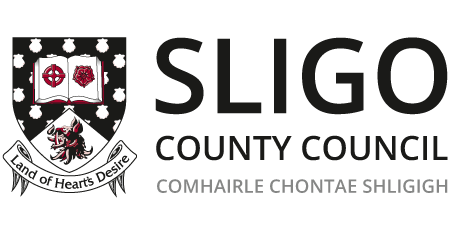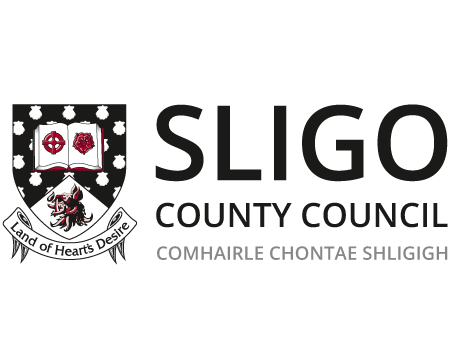Air Pollution
The Air Pollution Act 1987 and subsequent regulations /amendments made since 1987 set out the law in relation to air pollution in Ireland.
The Air Pollution Act 1987 (Solid Fuels) Regulations 2022, S.I No. 529 of 2022 came into operation on 31 October 2022.
The purpose of the Solid Fuel Regulations is to prohibit the sale and the distribution of unapproved solid fuels for combustion in a domestic or licensed premises.
The main legislative provisions of the SFR include:
- A national ban on sale and distribution of unapproved solid fuels for combustion for heating in a fireplace in a domestic or licensed premises.
- Technical and physical requirements for solid fuels, to be considered ‘approved’ including smoke emission rates, sulphur content and moisture content.
- Continued use of the ‘Fuels register’.
- Specific responsibilities and legal obligations for solid fuel producers, retailers, and transporters of solid fuels.
- Application of a third-party compliance certification system to enable registration of an approved solid fuel.
- Labelling requirements for packaged, approved solid fuels.
- Powers and responsibilities of Authorized Persons with respect to enforcement.
- Technical requirements for laboratory analysis of solid fuels (for the purpose of determining, confirming, and enforcing compliance).
- Revocation of regulations previously adopted.
Air Pollution Licences
Local Authorities are empowered under this legislation to licence certain classes of activities which may give rise to air emissions. Activities qualifying for an Air Pollution Licence are as listed in Schedule 3 of the 1987 Air Pollution Act, and it is the responsibility of the Local Authority to control and condition such activities.
Air Emission Application Form and Notes (PDF) - 30 kbs
An tAcht um Thruailliú Aeir Iarratas ar Cheadúnas (PDF) - 31 kbs
Statutory Notices
Section 26 of the Air Pollution Act 1987, allows Local Authorities to issue statutory notices requiring “measures to be taken to prevent or limit air pollution” and give a time limit for these measures to be taken.
Odours from Landspreading
Sligo County Council acknowledges that landspreading of agricultural slurries is a normal part of agricultural practices, and that some level of odour can be expected from slurry spreading. All slurry spreading should be carried out in accordance with good practice guidelines as issued by Teagasc, the EPA, and or the Department of Agriculture.
Burning of Wastes
The term Backyard Burning is applied to the uncontrolled burning of waste. Such burning is frequently carried out in backyards and in gardens, but the term also refers to the burning of any waste in open fires, ranges and other solid fuel appliances or in the open. It includes the burning of waste on sites by builders.
Sligo County Council expressly prohibits the open burning of commercial / domestic waste, and will act to prevent this occurrence when reported. Proper refuse disposal is via appropriate recycling, composting or refuse collection service, or other licensed / permitted waste disposal facility.
Complaints
Most of the Air Pollution complaints received by Sligo County Council relate to the ‘backyard burning’ of waste. These complaints are dealt with under the Air Pollution Act, 1987, and in 2004 62 air pollution incidences were dealt with by Environmental Services, with enforcement procedures taken in 35 cases.
Duty of Care
There is a duty on all citizens not to cause air pollution nuisance. The burning of any waste material including household waste is not acceptable and may result in prosecution as a result of (a) nuisance and/or (b) air pollution.
Are you burning waste in your backyard?
As the disposal of waste becomes more regulated, many think that burning household refuse in the backyard is a feasible method of disposal.
It is incorrectly seen as a way to save money, as well as a harmless and legitimate way of reducing the amount of waste for disposal.
Very often we are concerned about the health impact of incinerators/thermal treatment, and much debate has taken place over the issue of Dioxins.
However, what we fail to realise is that almost three quarters of dioxins arise from domestic burning of waste.
The uncontrolled burning of waste should be avoided at all costs. It is the responsibility of householders to deal with their waste in a legitimate and environmentally conscious manner.
What the law says
Under Section 24 of the Air Pollution Act, 1987:The occupier of any premises is obliged to use best practicable means to limit and if possible to prevent an emission from their premises. Premises in this instance excludes the actual dwelling house but does include the backyard and the garden area.
The occupier of any premises shall not cause or permit an emission from such premises in such a quantity, or in such a manner, as to be a nuisance. Premises in this instance does include a dwelling house.
Under law it is prohibited to dispose of refuse by burning. It is also prohibited to burn in an open pile, barrel or mini incinerator in your back yard / garden.
Burning refuse produces smoke and emissions that may give rise to serious health problems and negatively affect the environment.
Today’s waste contains plastics, bleached & coloured paper, metals and a variety of synthetic materials. When these are burned, many chemical reactions take place and emissions are released into the air. These emissions will contain some compounds, which are harmful (toxins).
When refuse is burned in a barrel in the backyard, or when businesses burn their waste in piles or small incinerators, the fire is not hot enough to destroy poisons or to ensure efficient burning and a great variety of dangerous chemical combinations are possible. Oxygen-starved burning conditions, which are associated with back yard burning, may result in incomplete combustion and increased toxic emissions.
Sligo County Council encourages the following activities:
- Endeavour to prevent waste and to reduce, re-use and recycle where possible.
- Invest in a wheelie bin.
- Contact the waste contractor that services your area, identify your collection day.
- Learn to segregate waste correctly.
- Purchase pre-paid bags for non-recyclable waste.
- Purchase pre-paid bags for recyclable waste.
- Use you local bring banks for glass and cans.
- Get into composting.
- At all costs avoid the burning of domestic refuse.
If you have issues or difficulties with any aspect of these waste management policies, contact the Environment Section on 071 91 9111454.
Bonfires and Halloween
Sligo County Council wishes to advise the public that the lighting of bonfires at Halloween or on Bonfire Night should be undertaken with great care for health, safety and environmental reasons. Sligo County Council does not wish to spoil traditions steeped in our history and culture, but must advise the public of the dangers of large bonfires at these times, particularly when they are composed of waste materials.
The traditional bonfires burned wood and straw. Nowadays old tyres and waste materials are used as fuel. In some instances, householders will use the excuse of a bonfire to off-load waste materials. Waste material should not be provided by householders for the purpose of burning in bonfires. Following new regulations, it is now a offence to give your waste to any individual who does not hold a current and valid waste collection permit.
Tyres, in particular, are frequently burned in bonfires, be aware that they are one of the most polluting materials when burned. The application of chemicals in the manufacturing process, makes tyres a very dangerous product once heat is applied. They contain many chemicals, which during burning, produces toxic fumes. The heat of the bonfire does not destroy many of these emissions. They are emitted into the air we breathe. They contaminate the area around the fire and lands over a long range. vOnce released these toxins will persist for a long time in our environment. Some of the effects may be long-term and cumulative.
Backyard burning of waste including bonfires is illegal under the Air Pollution Act 1987. The Air Pollution Act 1987 obliges us all not to cause or allow emissions in such a quantity, as to be a nuisance or cause air pollution. vThe Waste Management Act 1996 prohibits the burning of any waste type except in accordance with a permit.
Nowadays we all have greater obligations with regard to our environment. Think before you light a bonfire this year.
Ban on Smoky Coal
As people in Sligo already know, the burning of smoky or bituminous coal is prohibited in and around Sligo Town. Sligo Low Smoke Zone (PDF) - 6,661 kbs
But despite the ban, it would appear as though some people are still using it. While most of us are already aware of the major problems that air pollution can cause for those of us dealing with illnesses such as asthma and emphysema, more recent research is starting to show us that air pollution may also be linked to other serious issues from strokes to brain cancer, miscarriages and mental health problems. And this is before we start to look at the impact it is having on our overall climate.
Therefore Sligo County Council would like to advise people that if they wish to continue to use solid fuel in or around Sligo Town, that they choose low smoke or smokeless fuel and do not allow themselves to be tempted by anyone selling cheaper, smoky coal. It might cost less, but there is a reason for this. Not only is it illegal to use it in the Low Smoke Zone around Sligo Town, but it gives out less heat, and creates more ashes, than the low smoke fuels. It might look good and bright when burning, or might be a bit easier to light, but it is dirty, smelly and seriously bad for your health and that of everyone else in your neighbourhood.
If you are aware of any premises or suppliers who may be in breach of the Regulations or would like any further information, please do not hesitate to contact the Environment Section of Sligo County Council on 071 9111457 or email enviro@sligococo.ie.
For further information on this topic please visit
Feedback
I want to leave feedback on this page


